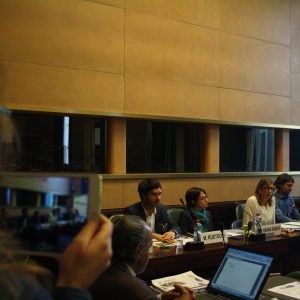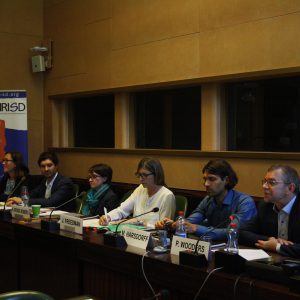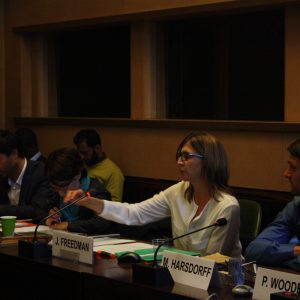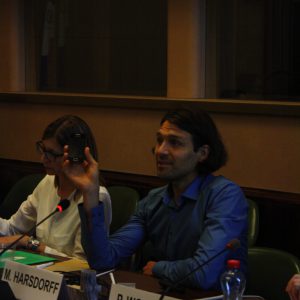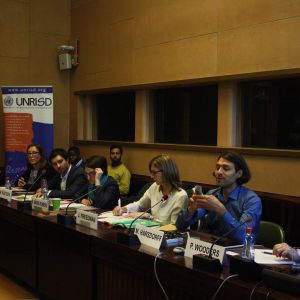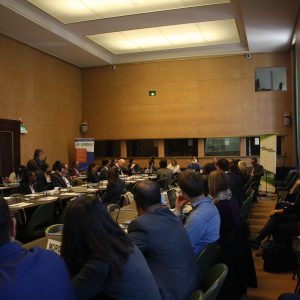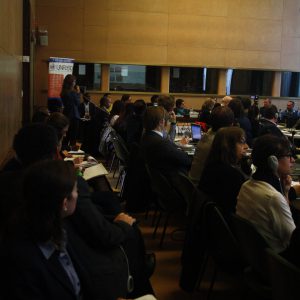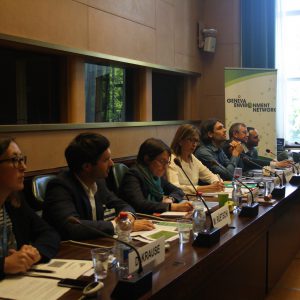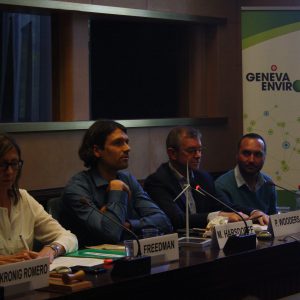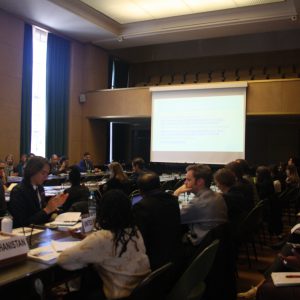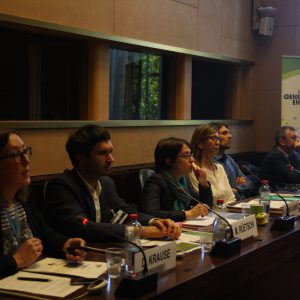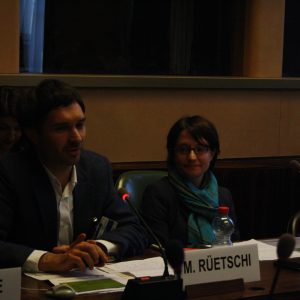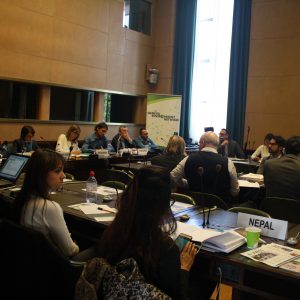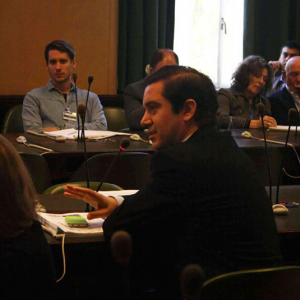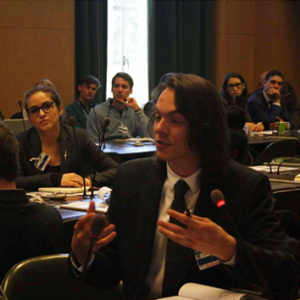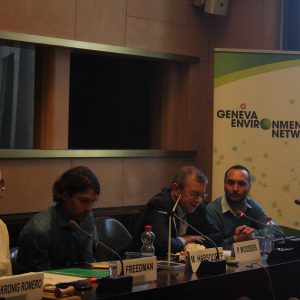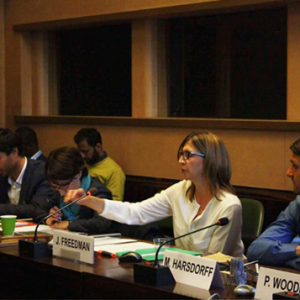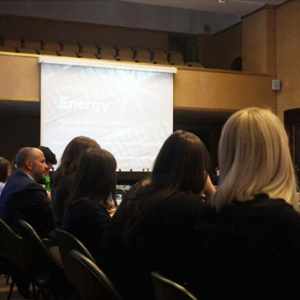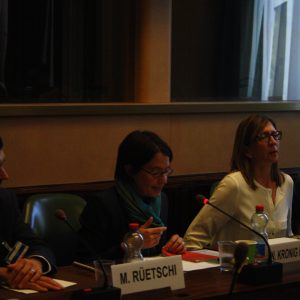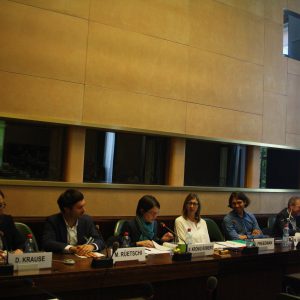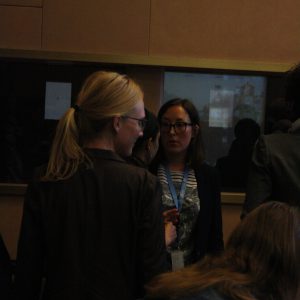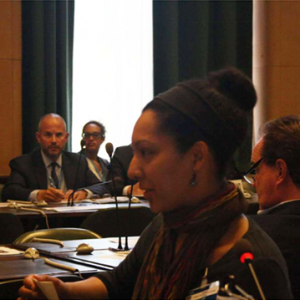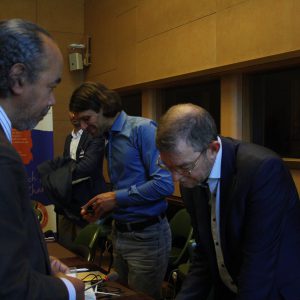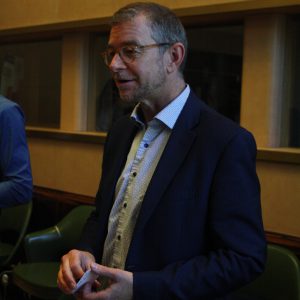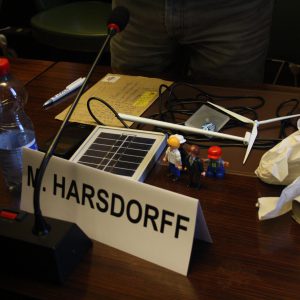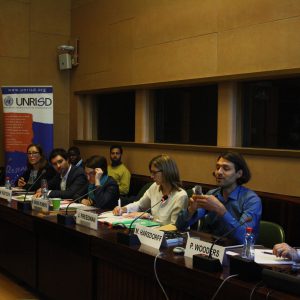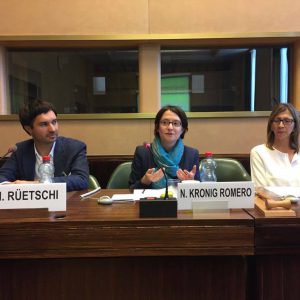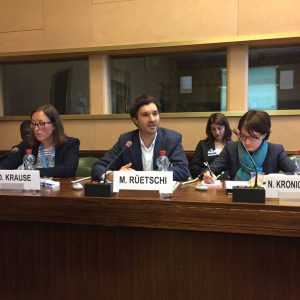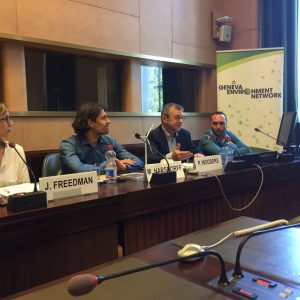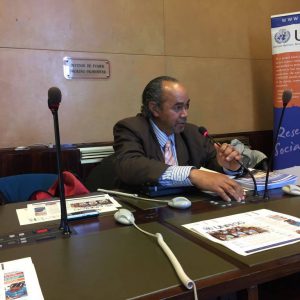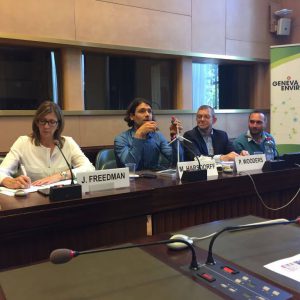Event
Energy Transition and the 2030 Agenda
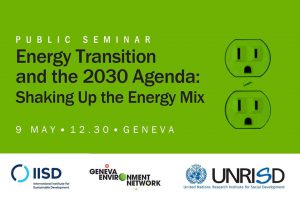
A UNRISD–IISD–GENeva Environment Network Panel Discussion organized at the Palais des Nations, on Tuesday 9 May 2017.
With the 2030 Agenda for Sustainable Development, governments have committed to an ambitious vision that aims to transform our world. SDG 7 holds the promise of access to affordable, reliable, sustainable and modern energy for all, with a substantial increase in the share of renewable energy in the global energy mix. The Paris Agreement reached at the UN Climate Change Conference in 2015 (COP21) was a turning point on a net zero-greenhouse gas, climate-resilient and sustainable development path.
What are these commitments likely to translate to, in practice? What will it take to turn the vision into reality?
Global energy systems, and the economies and societies within which they function, will have to undergo significant transformation in many domains to produce energy sustainably, change consumption patterns and enhance energy efficiency. Energy transition is necessary not only to meet rapidly rising energy demands, but also to reduce greenhouse gas emissions, mitigate climate change, and reduce the adverse environmental impacts of the extraction and use of fossil-based energy. Energy transition is a requirement to achieve the social, environmental and economic objectives inherent in the concept of sustainable development.
At this panel discussion, speakers explored the implications of the energy transition from a range of perspectives—from the technological and environmental, to the social, economic and political. The aim of the event was to stimulate a debate on how to get the energy transition “right”.
The Panel
– Peter Wooders (IISD) kicked off with a presentation on what the energy transition was.
– Marek Harsdorff (ILO), then spoke about the employment and job implications of energy transition.
– Dunja Krause (UNRISD) looked at energy transition through an eco-social lens, considering social barriers and opportunities as well as policy responses, drawing on the analysis and recommendations in the UNRISD Flagship Report, Policy Innovations for Transformative Change.
– From a local perspective, Matthias Rüetschi presented energy transition projects that Services Industriels de Genève (SIG) are currently investing in.
– Nora Kronig Romero (Permanent Mission of Switzerland to the UN) delivered closing remarks.
– Jenifer Freedman (UNRISD), moderator
Speakers at this joint UNRISD-IISD-GEN panel discussion, which hold ahead of the Swiss popular vote on 21 May on the country’s proposed Energy Strategy 2050, explored the implications of the energy transition from a range of perspectives—from the technological and environmental, to the social, economic and political.
Summary
“The stone age did not end for lack of stone” attributed to a Saudi King on the need for energy transition
In the opening remarks, Jenifer Freedman reminded
- Energy transition should be inclusive, participatory, just and equitable.
- Significant transformations in many domains have to be done.
- Energy is crucial for achieving almost all of the SDGs, according to the latest progress report on the SDG.
- Energy transition will be required in social and sustainable development. It needs also to be explored technologically, environmentally, politically and socially.
- Swiss citizen will be voting on 21 May on the country energy strategy 2050.
Peter Wooders, IISD
- The global energy transition is affordable, according to the Berlin energy transition dialogue outcomes:
– A switch from coal to gas, energy efficiency efforts & rapidly rising low-carbon investments have stalled global CO2emissions growth
-An early, ambitious & consistent set of policy measures would be needed for the energy transition - Energy transition is happening in Switzerland, Germany and many more.
- Demand for reform in transport, electricity, residential, commercial and industry.
- Transport is much more difficult to reform has there is no alternative oil for now. We need to decarbonize transport.
- UK closed coal mine recently.
- Chinese government understood the impacts of coal exploitation on people and developed a consolidation plan.
- Energy transition is possible with fiscal policy reform: reforming subsidies and taxing energy and carbon.
- Governments need to stop propping up non-renewable energy industries.
Marek Harsdorff, ILO
- Energy transition creates jobs: a coal station creates 1 job, a solar 2 jobs and a wind 4-5 jobs. These are mostly masculine jobs (gender dimension)
- Countries need to understand the impact of energy transition on employment and social problematic.
- A study shows that the air and water transport industries are the most polluting.
- ILO produced a guideline for a just transition towards environmentally sustainable economies and societies for all at http://www.ilo.org/global/topics/green-jobs/news/WCMS_422575/lang–en/index.htm.
- ILO recommends social dialogue between energy producers and workers to find a just transition.
- Energy transition will not happen by default, it has to be by design.
Dunja Krause, UNRISD
- Renewable energies can give an access to energy in remote area, especially in the developing countries.
- Millions of people die each year because of air pollution, according to WHO.
- Pollution and energy are not only rural issue because cities bring more greenhouse gas (70% of the global gas emission).
- Energy can increase the qulity of life.
- Economic activities should be a mean to reach equity and environmental sustainability.
- We need an energy justice approach and need to understand how the poor and marginalised people can participate to the tranistion.
- Energy cooperatives have been major driver of German energy transition, increasing local jobs.
- Energy is a social issue.
- Highlight the role of civil society and the pressure it can exert on governments.
- Nobody would have thought 10 years ago that the cost of renewables would go down so fast.
Matthias Rüetschi, Services Industriels de Genève (SIG)
- Geneva is providing electricity 100% renewable since 1st January 2017.
- People can choose where their energy comes from.
- 1986 : in the Swiss constitution, an article was added to forbid providing energy from nuclear sources
- different actions for individuals, housing and private sector with new technologies or projects (like Optiwatt), education of professionals and owners.
- Actions for awareness raising for children on energy.
Nora Kronig Romero, Permanent Mission of Switzerland to the UN
- Need exchanges like today to find local and international solutions.
- Exchanges are important to have added value in this complex subject.
- There is a real complexity to push fowards actions and measures on the political scale in Switzerland but also elsewhere.
- Rather than debating the necessity of a transition, we are nowadaysdebating on how to implement it showing that concrete proposals are on the table.
More informantion and documents
Link to video on our facebook page.
https://www.genevaenvironmentnetwork.org/wp-content/uploads/2020/05/energyseminar_dunja.pdf

